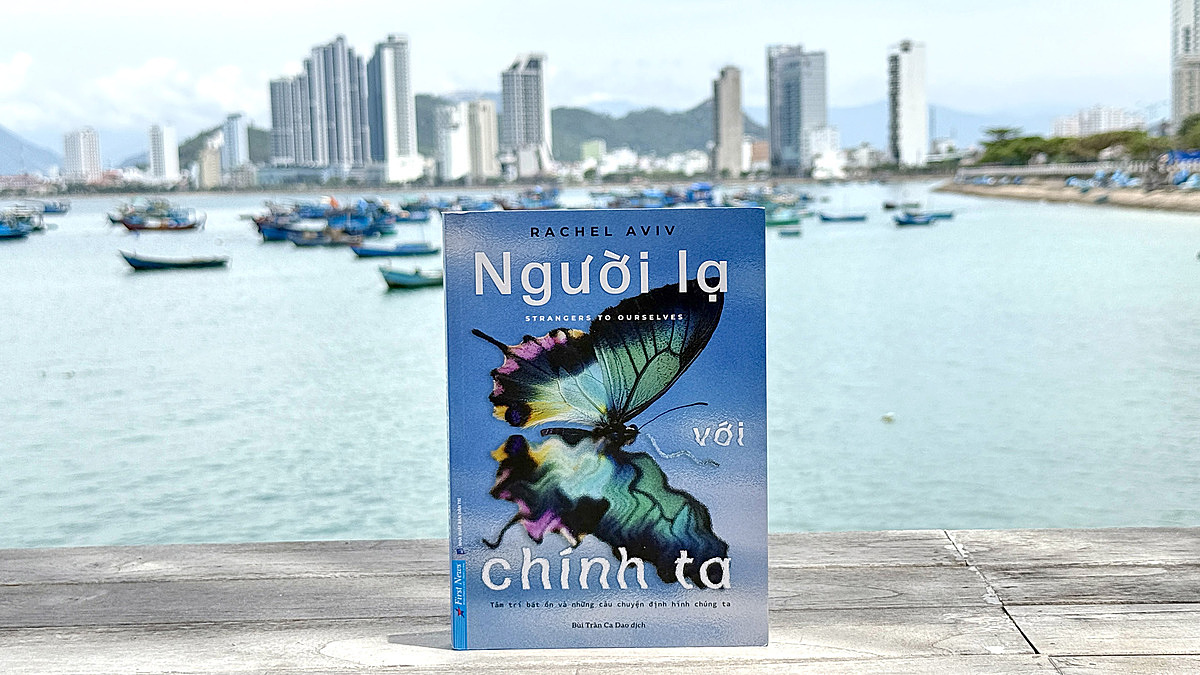In the world of mental illness, lives are often defined by syndromes and diagnoses, overlooking crucial aspects like background, relationships, and how individuals interpret their suffering. While labels can provide a sense of self, they can also create a sense of alienation, as individuals become overly identified with these constructs. This is the perspective of Rachel Aviv in "Strangers to Ourselves", a work praised by the Guardian for "redefining the concept of mental illness".
First published in 2022 as "Strangers to Ourselves: Unsettled Minds and the Stories That Make Us", the book presents six stories of individuals grappling with the limits of psychiatric explanations of who they are, according to Amazon.
 |
The Vietnamese edition of "Strangers to Ourselves", translated by Bui Tran Ca Dao and published by Dan Tri in association with First News, was released in August. Photo: First News |
The Vietnamese edition of "Strangers to Ourselves", translated by Bui Tran Ca Dao and published by Dan Tri in association with First News, was released in August. Photo: First News
The book opens with Aviv's childhood experience as a six-year-old diagnosed with anorexia nervosa, reportedly the youngest case at the time. Aviv recalls being too young to understand "anorexia," imagining it to be the name of a dinosaur. Her worried parents delved into available literature on the illness.
Hospitalized, Aviv shared a room with older girls also struggling with eating disorders. She listened to them discuss "rewards" for finishing meals and anxieties about failing. While others treated their illness as a "career," behaving according to their medical charts, Aviv embraced spontaneity. She recovered quickly without relapse.
This early experience led Aviv to question whether diagnoses solve patients' problems or shape their lives. According to the Vietnamese publisher, the book is "Rachel Aviv's interrogation of the medical models that nearly placed her life on a dark path".
 |
Cover of the English edition, "Strangers to Ourselves: Unsettled Minds and the Stories That Make Us". Photo: Amazon |
Cover of the English edition, "Strangers to Ourselves: Unsettled Minds and the Stories That Make Us". Photo: Amazon
Following Aviv's memoir are stories of two high-achieving individuals wrestling with mental health treatments and an Indian woman whose psychosis stems from a spiritual obsession. The final two sections explore a Black mother who, driven by schizophrenia exacerbated by racial discrimination, kills her child, and the fate of the girl who once shared Aviv's hospital room.
Through these narratives, Aviv illuminates the self-perception and worldviews of those with mental illness, demonstrating how unsettled minds can alter identity. She argues that diagnoses and medications can be ineffective without considering personality, circumstances, and genetics.
Aviv writes: "Stories about mental illness often take on a characteristically individual cast; the illness arises from within, and the ill person bears it in solitude. But these stories leave out where and how a person lives, and the ways that their identity reflects how other people see them. Our illnesses are not simply contained within our skulls; they are also created and sustained through our relationships and communities.”
 |
Portrait of author Rachel Aviv. Photo: NRC |
Portrait of author Rachel Aviv. Photo: NRC
The Vietnamese publisher's introduction states: "Readers may be unsatisfied that within over 300 pages, no clear answers are provided. But Aviv didn't write 'Strangers to Ourselves' to offer solutions; it's a question, a challenge to the limitations and closed systems of psychiatry. Reading this book requires openness, curiosity, skepticism, and patience with an unfamiliar world. Upon finishing, we'll hesitate to judge those who share their pain and be more cautious using labels like 'depression', 'anxiety', or 'disorder', understanding that these simple words can inadvertently become confining barriers.”
On Goodreads and Amazon, the book holds ratings of 4.1/5 and 4.4/5 stars respectively. Many readers praise its depth and insights into the history of mental health treatment. One American reader commented: "The cases are well-chosen, representing diverse backgrounds and cultures. Perhaps this is Aviv's way of demonstrating that vulnerability to mental illness is far more widespread than we think".
Rachel Aviv writes for The New Yorker, covering medicine, legal ethics, and criminal justice. In 2022, she won the National Magazine Award for Profile Writing. She lives in Brooklyn, New York.
Phuong Thao












